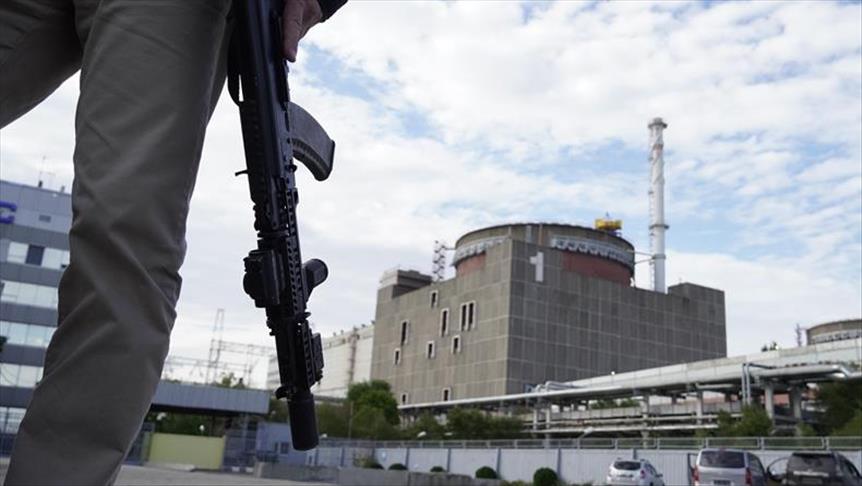Do you know about the critical situation at the Zaporizhzhia nuclear plant in Ukraine? The United Nations and the Secretary-General are deeply concerned and urgently calling for action. They are pleading for immediate cessation of military activities around the plant and withdrawal of military personnel and equipment. It is crucial to establish a safe perimeter of demilitarization. Plans are underway for an International Atomic Energy Agency (IAEA) mission to assess the plant’s safety and security. Both Ukraine and Russia have expressed support for this mission, but there are differing perspectives, with Russia accusing Ukraine of nuclear blackmail. Promptly addressing these concerns is vital to prevent a potential catastrophe at the Zaporizhzhia nuclear plant.
Concerns Over Zaporizhzhia Nuclear Plant Situation
You should be aware of the concerns surrounding the situation at the Zaporizhzhia nuclear plant in Ukraine. The ongoing tensions between Ukraine and Russia have raised serious concerns about the safety of the nuclear facility. Preparations for an IAEA mission to assess the safety and security of the plant are underway. It is crucial to ensure the safety of the plant and prevent any military activities in its vicinity. International cooperation is essential in addressing these concerns and finding a peaceful resolution. The potential consequences of any damage to the plant are catastrophic, as it produces electricity that belongs to Ukraine. The Russian perspective accuses Ukraine of nuclear blackmail, but Ukraine denies shelling its own facility and emphasizes the need for the IAEA mission to confirm the real situation. Support for the IAEA mission is crucial, as it will provide expert analysis and help in evaluating the situation at the plant. It is imperative to condemn any acts of violence and work towards a peaceful resolution to ensure the safety of the Zaporizhzhia nuclear plant.
Preparations for IAEA Mission
Preparations for the IAEA mission to assess the safety and security of the Zaporizhzhia nuclear plant in Ukraine are currently underway, as concerns over the ongoing tensions between Ukraine and Russia continue to escalate. The mission timeline is being carefully planned, with consultations between the IAEA and relevant stakeholders ongoing. The primary focus of the mission is to evaluate the safety and security measures in place at the nuclear plant. This includes assessing the physical integrity of the reactors and the effectiveness of the containment structures in preventing the release of radioactive material. Ukrainian support for the mission is crucial, as they play a key role in providing access and information to the IAEA experts. International cooperation is also vital, with the involvement of the IAEA ensuring a collaborative effort to address the potential risks and vulnerabilities at the Zaporizhzhia nuclear plant. The mission will provide valuable insights into the current situation and help identify any necessary improvements or additional measures to enhance the safety and security of the facility.
Russian Perspective on Plant Situation
The Russian perspective on the situation at the Zaporizhzhia nuclear plant is frequently characterized by accusations and alleged incidents of Ukrainian shelling. The Russian Ambassador has openly accused Ukraine of engaging in nuclear blackmail. Furthermore, there have been reports of alleged shelling incidents at the plant. Despite these accusations, the Russian perspective emphasizes the joint work between workers, fire squads, emergency personnel, and the Russian military to ensure the safety and security of the plant. They claim that there is a healthy working atmosphere at the plant and that there is no oppression taking place.
From the Russian perspective, it is important to support the efforts towards an International Atomic Energy Agency (IAEA) mission to the plant. An agreement for the mission was already made in June, and they are expecting it to take place soon. The Russian perspective believes that the mission experts will be able to confirm the real situation at the plant, providing valuable information to address any concerns. They also urge condemnation of the recent car bombing in Moscow, highlighting the need for international cooperation and support in addressing security threats. Overall, the Russian perspective emphasizes the importance of working together and maintaining a safe and secure environment at the Zaporizhzhia nuclear plant.
Support for IAEA Mission
Support for the IAEA mission at the Zaporizhzhia nuclear plant is steadily growing as key stakeholders express their commitment to ensuring safety and security. The international community recognizes the urgency of protecting this critical nuclear facility and is rallying behind the IAEA’s efforts. Here are two important aspects of the support for the IAEA mission:
- International Cooperation:
- Countries around the world are coming together to support Ukraine and the IAEA in their mission to safeguard the Zaporizhzhia nuclear plant.
- Collaborative efforts are being made to share expertise, resources, and intelligence to enhance the security and safety measures at the facility.
- Nuclear Facility Security:
- The IAEA mission is crucial in assessing the current security situation at the Zaporizhzhia nuclear plant.
- By conducting thorough inspections and evaluations, the IAEA experts will determine the level of protection needed and recommend necessary measures to enhance the facility’s security.
The support for the IAEA mission is a testament to the international community’s commitment to preventing any potential nuclear catastrophe. Through international cooperation and a focus on nuclear facility security, stakeholders are working towards ensuring the safety of the Zaporizhzhia nuclear plant and maintaining the integrity of its operations.
Ukraine’s Response to Shelling Claims and Proposal for IAEA Mission
Ukraine vehemently denies the shelling claims and puts forth a proposal for an IAEA mission to assess the situation at the Zaporizhzhia nuclear plant. Ukraine’s denial of shelling its own nuclear facility is based on the understanding that such an act would risk a nuclear catastrophe. In response to the allegations, Ukraine is proposing an IAEA mission in compliance with national legislation. The proposal aims to assess the situation at the Zaporizhzhia nuclear plant and ensure that all necessary measures are taken to maintain its safety and security. Further arrangements will be made based on security conditions and logistical aspects. Additionally, Ukraine is calling for a permanent presence of the IAEA at the plant until Ukrainian authorities regain control. This proposal reflects Ukraine’s commitment to ensuring the protection of its nuclear facilities and compliance with international safety standards. By requesting the IAEA’s involvement, Ukraine seeks to address the shelling claims objectively and ensure the ongoing safety of the Zaporizhzhia nuclear plant.
Concerns About Legal Protection of Nuclear Installations
Concerns arise regarding the legal protection of nuclear installations amidst the ongoing crisis at the Zaporizhzhia nuclear plant in Ukraine. The challenges faced in this regard necessitate a reflection on the current legal framework and the need to strengthen accountability measures. The gaps in the existing law highlight the vulnerabilities of nuclear installations during armed conflicts. To convey a deeper understanding, consider the following points:
- The legal framework for protecting nuclear installations encompasses various aspects of safety and security, including the right to peaceful uses of nuclear energy and limiting nuclear proliferation.
- Customary international law plays a crucial role in filling gaps left by treaty law in armed conflicts. However, political considerations have sometimes overridden the legal framework’s directives, as seen in past attacks on nuclear installations.
- The evaluation of the existing legal framework, including Additional Protocols I and II to the Geneva Conventions and Africas Pelindaba Treaty, is necessary to identify areas of improvement.
This analysis highlights the need for a comprehensive and robust legal framework that ensures the effective protection of nuclear installations. Strengthening accountability measures and addressing the gaps in the law will be essential to prevent future attacks and safeguard these critical facilities. A reflection on the shortcomings of the current legal framework is imperative to enhance the legal protection of nuclear installations in times of crisis.
Implications of Power Loss at ZNPP
The power loss at ZNPP has raised significant concerns about the safety and functionality of the nuclear plant. In terms of emergency response, the reliance on diesel generators for reactor cooling is now crucial. These generators are currently providing power to all safety systems at the plant, ensuring their normal operation. While the six reactors are in cold shutdown, they still require electricity for safety functions. The availability of fuel for the diesel generators is also a critical factor, with at least ten days’ worth of fuel currently available. ZNPP engineers have already begun repairing the damaged power line to restore external power supply.
The implications of the power loss highlight the importance of backup systems and emergency preparedness in ensuring nuclear safety. The situation at ZNPP underscores the need for continuous fuel supply to sustain the operation of backup systems. It is imperative to maintain essential functions, such as reactor cooling and safety, to prevent any potential risks. The loss of external power emphasizes the significance of reliable electricity supply for these vital functions.





